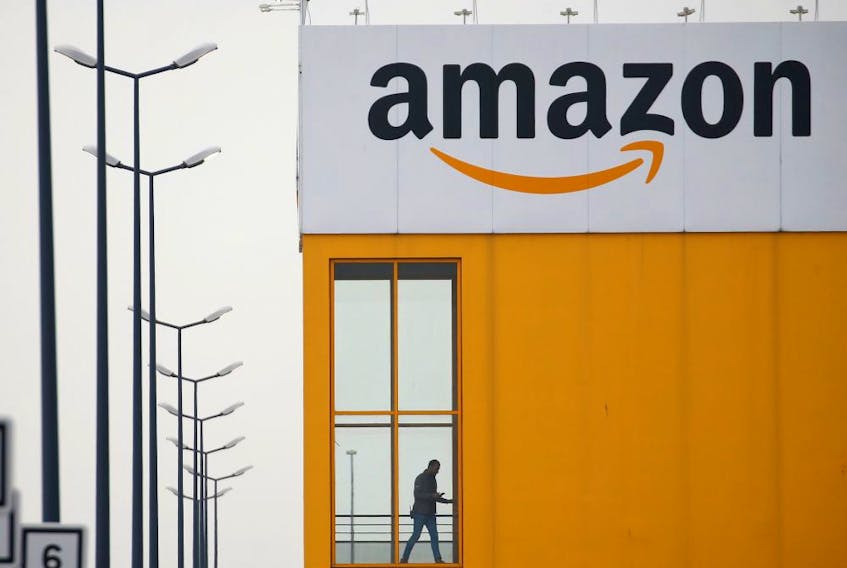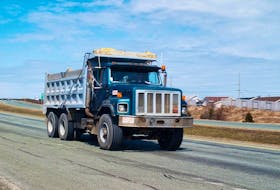OTTAWA — The federal government will force foreign digital vendors like Netflix or Amazon to collect and remit sales taxes on a bevvy of both physical and digital products and services sold to Canadians, all the while promising a much-requested new tax on Web giants by 2022.
The announcement, included in Monday’s fall economic statement, comes less than two weeks after the auditor general told MPs that Canada is losing out on at least $247 million annually in unpaid Goods and Services Tax/Harmonized Sales Tax (GST/HST) on digital products and services.
“Under current rules, foreign-based digital businesses can sell their goods and services to Canadians without charging the (GST/HST), which puts the burden on Canadian consumers to remit the sales tax,” the document reads.
“This gives foreign-based digital corporations an unfair advantage, and undercuts the competitiveness of Canadian companies. It also deprives the government of tax revenues that could be used to better the lives of everyone.”
The Fall Economic Statement also promises:
- An undetailed tax on companies offering digital services, such as Google or Facebook, that would be put in place starting Jan. 1, 2022, and bring in $3.4 billion over five years.
- New measures to ensure taxes are paid on short-term rentals (like AirBnB).
- New taxes on uninhabited real estate used by rich foreigners.
- Significant investments in the Canada Revenue Agency’s fight against offshore tax evasion and aggressive tax avoidance that the government says will return $1.2 billion to the nation’s coffers over five years.
All these measures by the Trudeau government aim to “level the playing field” between foreign and Canadian companies, notably by making sure that sales taxes are applied equally to “all goods and services consumed in Canada”.
As of now, Canada’s “outdated” tax system requires that Canadian-based digital vendors collect and remit sales taxes to the CRA. But that onus falls on Canadian consumers or courier companies if the vendor is based abroad, meaning that those taxes are seldom paid.
But starting July 1, 2020, it will be up to those foreign companies to charge GST/HST and remit it to the CRA. The government estimates this will bring in an additional $1.2 billion by 2027.
Furthermore, foreign-owned vendors and digital marketplaces such as Amazon have “no requirement” to collect and remit sales taxes when their goods are sold in Canada, even if the products are stored in a warehouse on Canadian sale.
“By comparison, Canadian vendors using digital platforms and fulfillment warehouses in Canada are required to collect the GST/HST on the final price paid for their goods. This is putting Canadian vendors at a disadvantage,” the economic statement reads.
That too is about to change — at least in part — the government says.
Starting July 1, 2021, foreign vendors will have to charge sales taxes on online sales to Canadians, but only as long as the products are originating from warehouses in Canada. The measure is expected to bring an addition $1.6 billion into Canada’s coffers by 2027.
The Trudeau government is also looking at taxation in the real estate market.
Firstly, it will demand that online short-term accommodation platforms such as AirBnB begin charging sales taxes on rentals of Canadian properties. This will bring the rules in line with what is demanded of the traditional hotel business.
Secondly, it will propose a new tax “over the coming year” on unoccupied homes purchased by wealthy foreigners living abroad as a means to “passively store” their wealth. That, in turn, drives up home prices and makes them more unaffordable for Canadians.
In order to ensure that all new and old tax obligations are respected, the government plans on beefing up the CRA’s auditing and investigating power as well.
The Liberals say they will invest $606 million over five years starting in 2021-2022 to boost the CRA’s ability to detect and fight offshore tax evasion and aggressive tax avoidance. The government hopes to recoup $1.4 billion in unpaid taxes over the same period.
“Specifically, the CRA will hire additional offshore-focused auditors to focus on individuals who avoid taxes by hiding income and assets offshore, enhance the audit function targeting higher-risk tax filings … and strengthen its ability to fight tax crimes such as money laundering and terrorist financing,” details the economic statement.
Copyright Postmedia Network Inc., 2020









